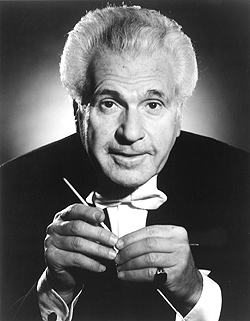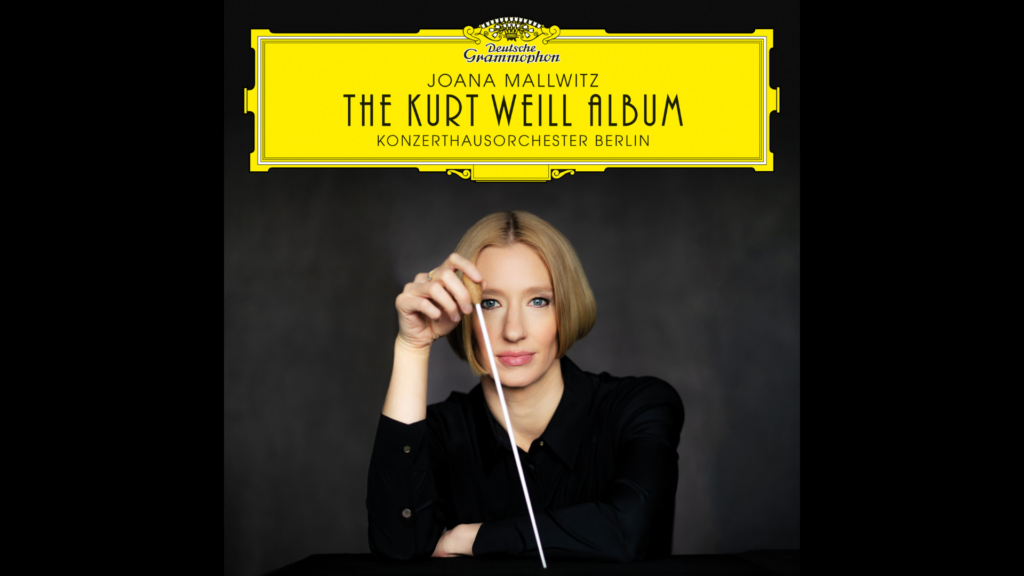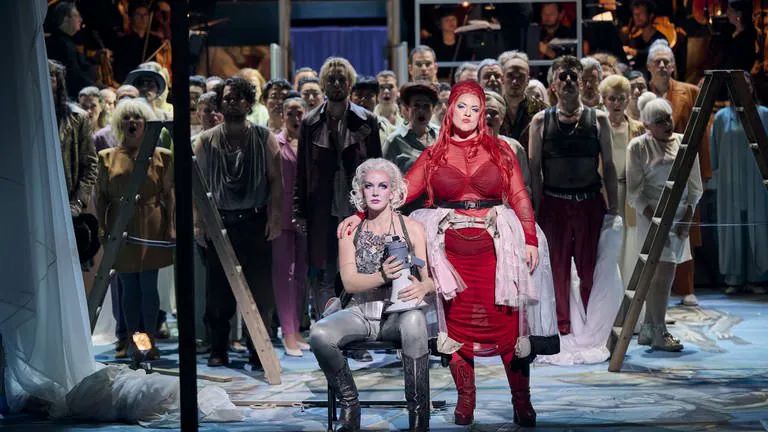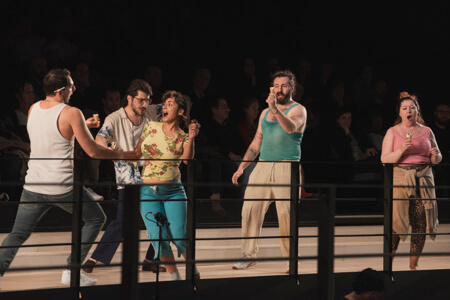
The Board of Trustees and the staff of the Kurt Weill Foundation mourn the death of longtime associate and inspiration Maestro Julius Rudel, one of the leading international opera conductors of the second half of the twentieth century. In a storied career that advanced the cause of opera in the U.S. both in artistic and administrative terms, Rudel also lent considerable energy to promoting and performing Weill’s music. He served as an active member of the Foundation’s Board from 1978 until 2008 and as a Trustee Emeritus until his death.
Rudel is best remembered for his stewardship of New York City Opera, which he built into a leading opera house. City Opera grew under his leadership to offer critically acclaimed productions of the traditional repertoire, but Rudel also insisted on promoting American operas. In 1958, he organized a series of American operas that included Weill’s last Broadway show, Lost in the Stars; the next season, he followed with Street Scene. Including Weill’s works was adventurous because they were not generally considered operas in a time of strict genre distinctions, but it was clear to Rudel that Weill belonged alongside Menotti, Bernstein, Floyd, and Moore in the front rank of American composers. City Opera continued to revive Street Scene periodically until 1990, by which time it had taken its rightful place as a standard work in American houses; Rudel’s daring programming had helped to establish Street Scene as a major American opera. In 1965, he conducted the original German version of The Threepenny Opera with Kurt Kasznar and Martha Schlamme in leading roles, a bracing revival that reminded New York audiences of the work’s power unmediated by translation.
City Opera was not Rudel’s only field of endeavor. He conducted Weill’s then nearly forgotten Second Symphony at the Caramoor summer festival (Katonah, NY) in 1970; later he recorded the symphony with the Sinfonieorchester des Bayerische Rundfunks. Rudel led two important Weill recordings with the Orchestra of St. Luke’s: a pairing of Kleine Dreigroschenmusik and the Violin Concerto (1988) and a complete recording of Lost in the Stars (1992) that helped lay the groundwork for a revival of interest in Weill’s anti-apartheid work. In 1999, at the Spoleto Festival USA, Rudel conducted the U.S. premiere of Die Bürgschaft, a performance that led to a recording of the complete opera with the Spoleto cast. As with Street Scene, Rudel recognized a major work that had been neglected and resolved to draw attention to it.
Maestro Rudel was invited to serve on the Kurt Weill Foundation’s Board of Trustees by Lotte Lenya, who recognized his stature as a leading Weill conductor and worked with him during preparations for a production of an adaptation of Weill’s last German stage work, Der Silbersee, with City Opera in 1979 (also recorded). He was an essential part of the Foundation’s growth during the first two decades after Lenya’s death. The Foundation recognized his unflagging and highly effective efforts on the podium and in the boardroom with a Distinguished Achievement Award during Weill’s centenary year in 2000. As we remember his rich life and vast and varied accomplishments, we extend condolences to his family and his wide network of colleagues and friends.


